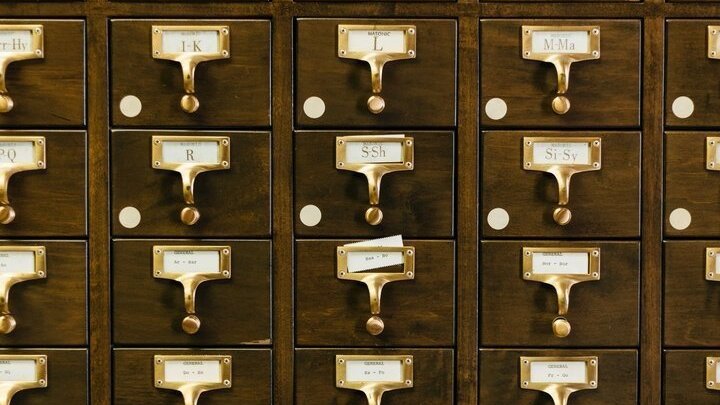
A brief overview regarding metadata and metadata standards can be found in this fact sheetpdf, 170 kb · de.
What is Metadata?
Metadata is data that describes data. For instance, it can provide information about
- the authorship, and the processes of data sampling or data generation
- publications describing the data and/or using them for investigations or experiments
- the procedures used for processing and analysis of the raw data
- access authorization and copyright notice
- the formats and coding of digital data
- the variables, parameters and categories used in tables, vectors and annotated data
- the application software that was used for generating or processing the data
- the application software for visualizing, observing, or searching the data
- the quality (validity, reliability) of the data
Metadata should comprise an informative headline, an abstract and some keywords.
Why is Metadata Essential for Research Data Management?
Most research projects produce thousands of data units. Metadata are the foundation for
- the administration and organization of data
- data retrieval and browsing within large amounts of data
- the re-use and further processing of the data
What are Metadata Standards?
Metadata should be comparable and linkable within and across different research projects.
It is therefore necessary to make sure that the notions used to describe the data are consistent and the terminology is clearly defined. For instance, the language of a historical document could be labelled with the terms deutsch or German or deu. According to the ISO 639-3 norm, the only correct option is the last one (see https://en.wikipedia.org/wiki/List_of_ISO_639-1_codesExternal link).
Metadata standards offer conventions for the generation and description of research data. They specify and define the structure of metadata.
Search engines for metadata (e.g. http://openarchives.org/pmh/External link of the Open Archive Initiative) can find such standardized metadata in repositories of metadata and make the corresponding data available for the research community.
An Example
A well-known metadata standard for the description of documents is the Dublin Core. The Dublin Core standard consists of a series of elements such as creator or title (find a complete list hereExternal link).
The Digitale Bibliothek ThüringenExternal link (Digital Library of the German State Thuringia) collects metadata in this format to ensure compliance of the data with the metadata harvesting of the Open Archive Initiative.
The picture below is an example of the metadata for Astrid Wohlberedt's video presentation about Recht, Gesetz und Gerechtigkeit in den Bildern der Cranach-Werkstatt im Spiegel der Reformation und des HumanismusExternal link (Right, Law, and Justice in the Pictures of the Cranach Workshop in the Face of Reformation and Humanism).
Example for meta data
Image: Petra C. SteinerFinding Metadata Standards for Different Disciplines
Different metadata standards are used in different disciplines. These links might help you finding a suitable standard or creating, if it does not yet exist:
These links might help you find a suitable standard or create a new one, if necessary:
- List of standards on fairsharing.orgExternal link
- List of Metadatastandards of the Digital Curation CenterExternal link
- Metadata Standards Catalog External linkof the Research Data AllianceExternal link
- Tools for generating and processing metadataExternal link of the Research Data AllianceExternal link
- DataCite Metadata GeneratorExternal link with DataCite Best Practice GuideExternal link
- CodeMeta GeneratorExternal link of the CodeMeta Initiative